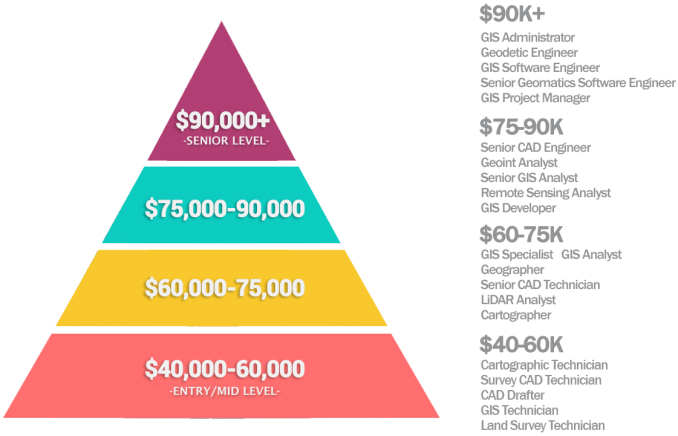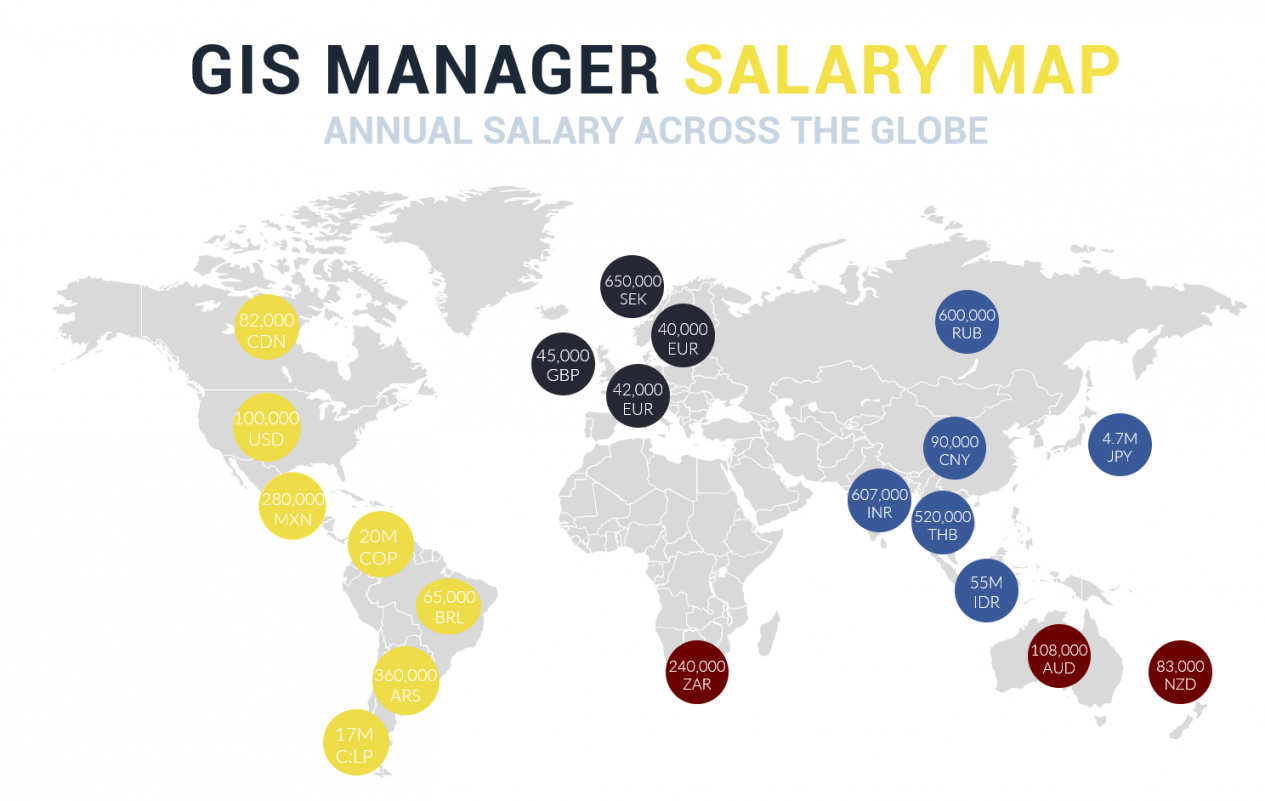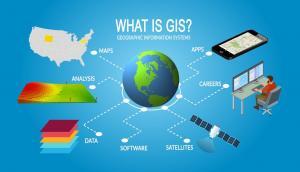GIS Manager Career: Managing Spatial People

GIS manager job skills, salary, and description
GIS managers don’t necessarily need strong technical skills in GIS. It’s a big plus if they do. But they don’t have to.
With their main focus on managing budgets, employees, and business development, GIS managers need good organizational skills with solid public speaking skills.
Your days will be booked with a lot of these. For example, this includes spreadsheets, emails, phone calls, and meetings. GIS managers often are project and departmental managers taking on several other roles.
How much can you earn? What types of skills do you need to become a GIS manager? Let’s explore the career of GIS managers.
The Payscale of a GIS Manager
In general, GIS managers are the highest level of pay you can earn in the field of GIS. They can earn higher than most GIS developers and specialists in their field.
- Remote Sensing Analyst ($83,000)
- GEOINT Analyst ($83,000)
- GIS Developer ($85,000)
- GIS Administrator ($96,000)
- Geodetic Engineer ($98,000)
- GIS Software Engineer ($99,000)
- Senior Software Engineer ($103,000)
- GIS Project Manager ($105,000)

What is the average GIS manager’s salary? The average GIS project manager makes more than $105,000 and sits on top of the GIS salary pyramid.
READ MORE: GIS Salary Expectations: Climb the GIS Career Ladder
Advantages and Disadvantages of GIS Management
GIS managers always have to do more in less time. They work on business development for the long-term benefits and values of GIS in an organization. It takes years of experience to become a GIS manager. Not only do you manage GIS projects, but you manage the people who make the projects happen.
Planting the GIS seeds in an organization means GIS managers are usually the beneficiaries of the highest pay. They manage the workload and direction of staff including GIS technicians, cartographers, programmers, and GIS analysts.
Even though GIS managers have a good overall basis of GIS, they don’t necessarily need the skills of a GIS technician or analyst. But their staff will respect them more if they have solid working knowledge in GIS. According to Indeed job trends, GIS managers are one of the highest in demand.
GIS Manager – Job Duties
What are some of the daily tasks of a GIS manager? Find out more below.
BUSINESS DEVELOPMENT involves anything from public speaking, technical writing & editing, and budgeting. Also, business management entails project management, teaching/training for personnel management, and sales/marketing.
TEAM LEADERSHIP GIS managers lead their teams to achieve a common goal in a GIS project. Staff includes various skill levels in GIS professionals, developers, and drafters. They assign and delegate tasks for the production of mapping products, reports, and applications.
It should also be your goal to get the relevant credentials you need to succeed as a GIS manager.
GIS Manager Complimentary Job Duties
Here are some of the complimentary job duties that you can expect in a GIS manager role.
CARTOGRAPHY is the study of creating maps. The origin comes from “charta” – “tablet or leaf of paper” and graph – “to draw”. Instead of creating map products, GIS managers often have to review maps. This includes anything from softcopy mapping and web mapping to ordinary map design.
DATABASE MANAGEMENT offers insight into how to store and extract information from structured sets of geographic data. Instead of performing everyday operations, GIS managers have the foresight to ensure quality control for database development. This means they will need knowledge of data management, database administration, and asset management consulting
SPATIAL ANALYSIS uses techniques to manipulate, extract, locate, and analyze geographic data. For example, spatial analysis examples include buffering, clipping, and exploring the relationships between map features. GIS managers will have to provide input for GIS modeling, data integration & conversion, data analysis, and geomatics.
GIS Manager – Example Tasks

The role of a GIS manager is pivotal in overseeing the strategic planning, implementation, and coordination of geospatial projects and teams within an organization. Here are GIS manager’s responsibilities and roles.
- Manage a diverse GIS project portfolio, guiding project decisions regarding technical approach, cost implications, and project scheduling.
- Engage in business development and take responsibility for project execution, and oversight of GIS team members, sub-contractors, and consultants to ensure the highest quality of work is provided to our clients
- Experience managing staff in a team environment with an ability to oversee and manage complex projects
- Show proven client management, organization, and communication skills required
The job description for a GIS Manager can vary based on the organization’s size, industry, and specific needs.
Salaries From Around the World
Salaries for GIS managers can vary widely based on factors such as the organization’s size, industry, location, years of experience, and level of responsibility. Here is a general overview of the salary ranges you might expect for a GIS manager role:
Depending on where you live, here’s how much GIS manager’s salaries are in different currencies around the world:

Conclusion: The GIS Manager Career
GIS managers stand as the navigators of a dynamic and data-driven landscape, steering organizations toward informed decisions and strategic insights. Their role bridges the realms of technology and geography, seamlessly integrating advanced spatial analytics with strategic planning.
As custodians of geospatial data, they orchestrate projects that map the course of progress, cultivating teams and resources to chart new territories of innovation. From deciphering complex datasets to crafting captivating cartography, GIS managers wield their multifaceted skills to illuminate the world through the lens of location intelligence.
The realm of GIS management is marked by constant evolution, adapting to emerging technologies, new challenges, and a world increasingly interconnected by location. These stewards of spatial information not only ensure the accuracy of maps and data, but also guide the transformation of raw information into actionable location insights.
With strategic vision, technical prowess, and an unwavering commitment to precision, GIS managers elevate their organizations to new heights, enriching our understanding of the world, and paving the way for a future shaped by the power of place.








